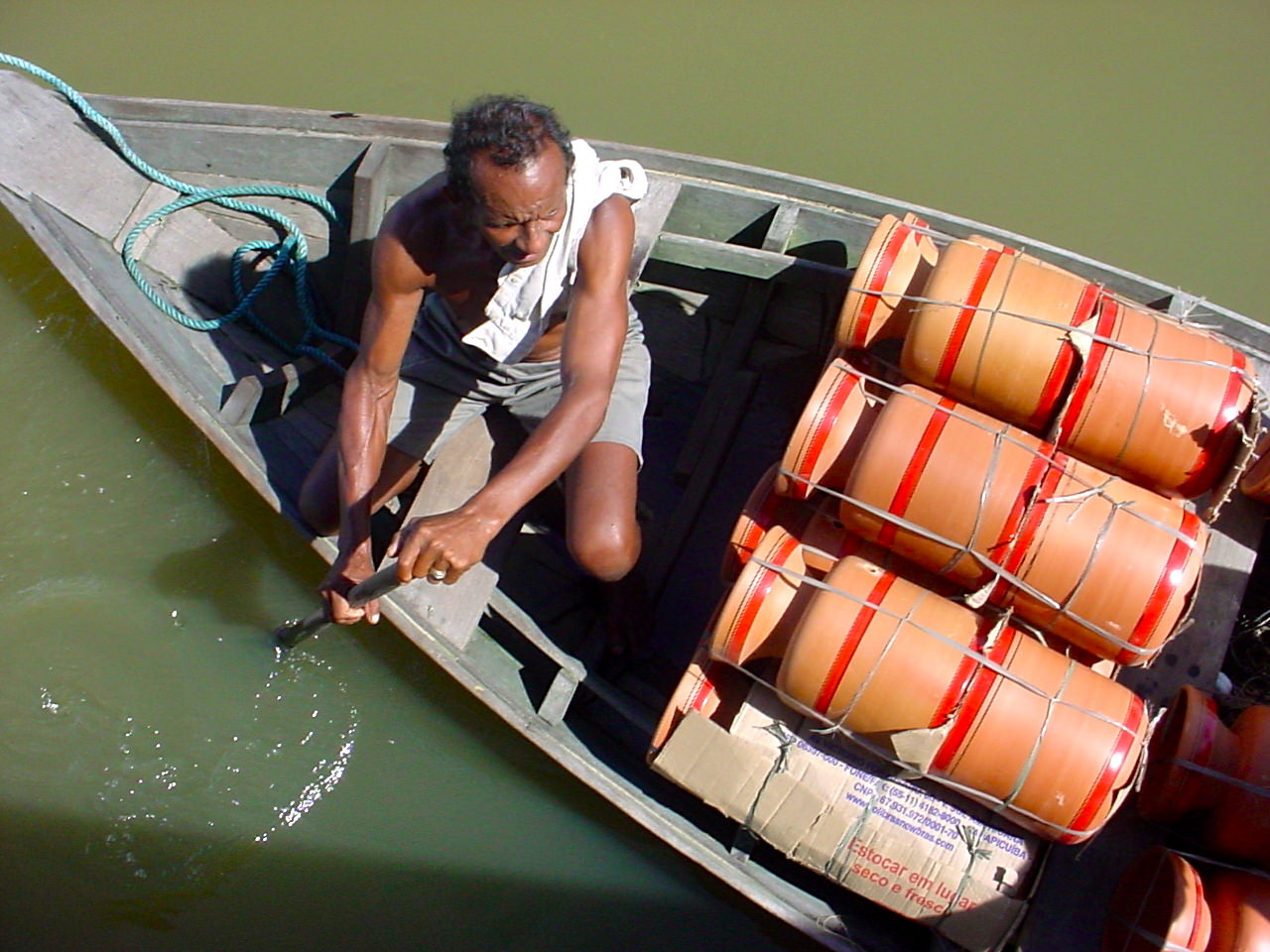Community Health
Abaré – Riverside Family Health
Created by the Federal Constitution of 1988, the Unified Health System (SUS) is founded on the principles of universality of service, fairness of action, decentralization of services and social participation in its control. Despite the advances, the implementation of SUS in the North region remains a major challenge, especially in rural areas. With municipalities the size of countries, long distances, dispersed populations that are difficult to access, low investment in sanitation and transportation and communication challenges, SUS has insufficient reach in these areas. This further aggravated by high logistical costs of bringing in medical teams, all without public financing mechanisms that are compensatory and appropriate for the Amazonian context.
Given this reality and based on decades of experience in the primary care of riverside communities in the region, PSA has built a new model of itinerant health care. The hospital-boat Abaré I started functioning in 2006, assisting 15,000 riverside residents of remote regions of the Tapajós, with 93% resolvability – that is, with just seven out of every 100 patients referred to health services in urban centers
After studying PSA’s hospital-boat model, the Ministry of Health in 2010 launched the Riverside Family Health Program, a public health policy for the entire region of the Legal Amazon and the Pantanal. With this new and important step, Abaré I was integrated into the SUS and accredited as the first Basic Fluvial Health Unit (UBSF) in Brazil.
Since then, PSA has been supporting the dissemination of the model: it acquired a second boat, the Abaré II, which was donated via lending to the city of Santarém to serve more than 2,000 families in the Arapiuns River basin; and has provided technical support to other cities in the North and Midwest regions of the country, where 64 other boats have already started operating.
In 2017, the hospital-boat Abaré I marked another achievement: in addition to continuing to operate as a UBSF, it became a teaching hospital, with teaching, research and extension activities from the Collective Health Institute (ISCO) of the Federal University of Western Pará (UFOPA). PSA participates in the project’s Management Board.
HOSPITAL-BOAT ABARÉ I
Abaré I is the first Basic Fluvial Health Unit (UBSF), providing primary care since 2006 to approximately15,000 riverside residents of 72 rural communities in the cities of Santarém, Belterra and Aveiro, in Western Pará.
Abaré I follows a schedule to allows populations have regular access (every 40 days) to its services. In addition to doctors, nurses, dentists and other healthcare teams, clowns and art-educators from the Mocorongo Circus engage in educational and awareness activities, as well as training local replicators.
ABARÉ IN THE COMMUNITIES
Actions on the hospital-boat Abaré I in 72 Tapajós River communities, in Western Pará.
RESULTS OF THE ABARÉ I HOSPITAL-BOAT
Reduction in malnutrition rates to*
See also
Water and Sanitation
Access to drinking water has been a major focus of PSA’s work, as it is directly related to health conditions and quality of life of the population. The program implements independent water treatment and supply systems, built and managed by the communities themselves. Currently, hybrid technology generates savings and reduces environmental impact thanks to the use of solar energy.
Rádio Mocoronga
Contact
- Av. Mendonça Furtado, 3979
- +55 93 3067-8000
- +55 93 99143-1091
- psa@saudeealegria.org.br
HOW TO HELP
Projeto Saúde & Alegria © 2020
Agência Fervo






